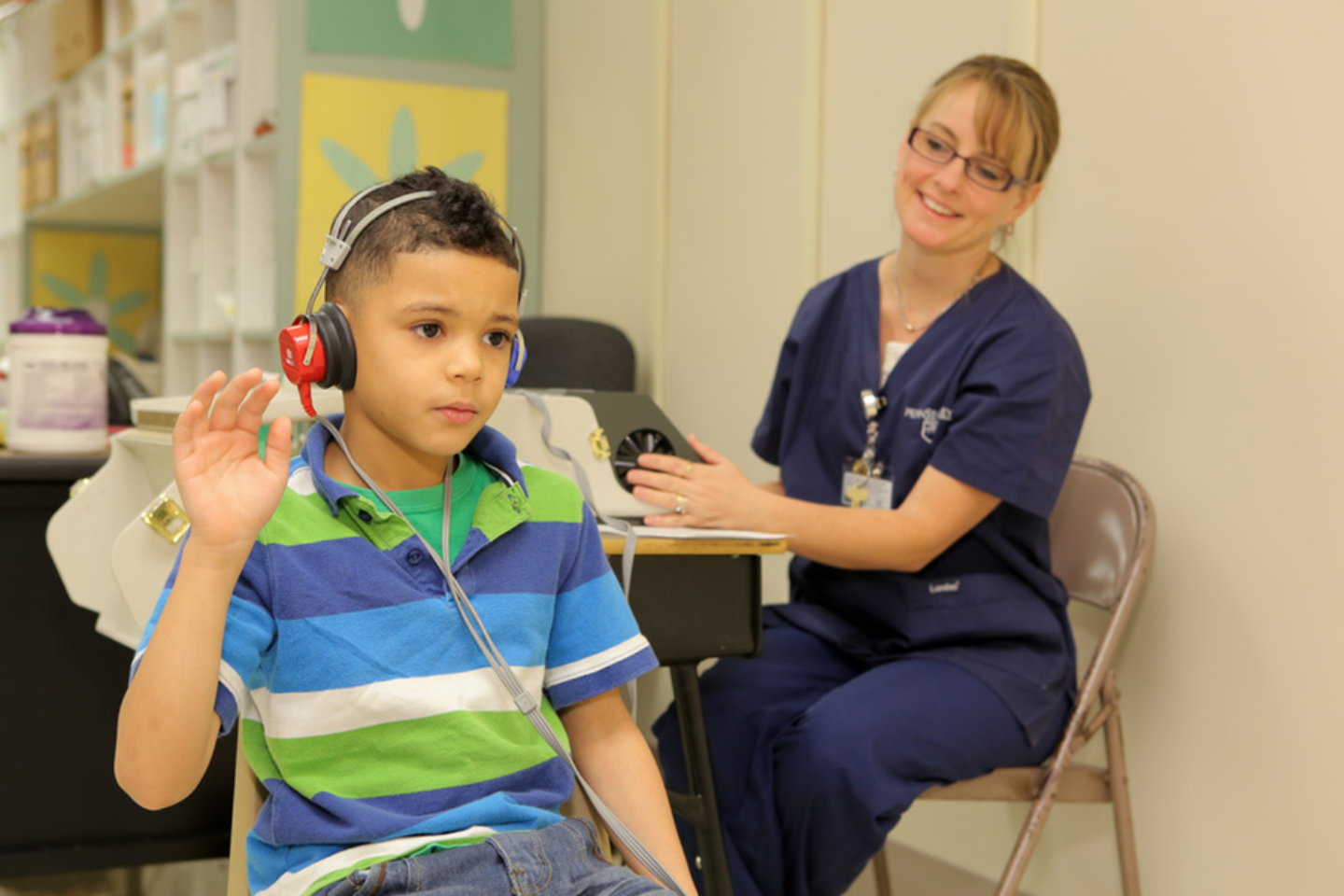Kids Hearing Tests




Why is a Kids Hearing Test Important?
Children rely heavily on their hearing to follow lessons, participate in discussions, and understand instructions. Undetected hearing loss can lead to poor academic performance and frustration.
Hearing is essential for building friendships and engaging in social activities. Kids with untreated hearing issues may struggle to communicate effectively, leading to isolation or low self-esteem.
Hearing problems can develop at any age. Regular hearing tests ensure that any issues are identified early, allowing for timely intervention.
Knowing that your child’s hearing is in good health can give you confidence in their ability to thrive academically and socially.
What Does a Kids Hearing Test Involve?
A hearing test for children aged 8 and above is tailored to their age and developmental stage. It’s a painless, non-invasive process that typically includes the following components:
1. Case History
The audiologist will ask about your child’s medical history, any hearing concerns, and their performance at school or in social settings.
2. Physical Examination
A visual inspection of the ears using an otoscope can reveal issues like earwax buildup, infections, or structural abnormalities.
3. Pure-Tone Audiometry
This test measures your child’s ability to hear sounds at different frequencies and volumes. The child wears headphones and responds to sounds by raising their hand or pressing a button.
4. Speech Recognition Testing
This evaluates how well your child can understand and repeat spoken words. It’s particularly important for assessing their ability to hear in noisy environments, like classrooms.
5. Tympanometry
This test checks the function of the middle ear by measuring the movement of the eardrum. It can detect issues like fluid buildup or Eustachian tube dysfunction.
6. Otoacoustic Emissions (OAEs)
OAEs measure the sounds produced by the inner ear in response to stimuli. This test is quick and often used to confirm the results of other tests.
How to Prepare Your Child for a Hearing Test
-
Explain the Process
Let your child know what to expect during the test. Reassure them that it’s painless and won’t take long.
Step 1
-
Use Positive Language
Frame the test as a way to ensure their ears are healthy and working well. Avoid using words like “test” or “exam,” which might make them nervous.
Step 2
-
Bring Comfort Items
If your child is anxious, bring a favorite toy or blanket to help them feel more comfortable.
Step 3
-
Schedule at the Right Time
Choose a time when your child is well-rested and alert, such as in the morning or after a nap.
Step 4



The Benefits of Early Intervention
Improved Academic Performance
Addressing hearing issues early can help your child stay on track in school and reach their full potential.
Enhanced Social Skills
Clear hearing allows children to communicate effectively and build strong relationships with peers.
Prevention of Further Issues
Early detection and treatment can prevent hearing problems from worsening over time.
Boosted Confidence
Children who hear well are more likely to participate actively in class and social activities, boosting their self-esteem.
Frequently Asked Questions
A kids hearing test is a powerful tool for ensuring your child’s hearing health, supporting their development, and safeguarding their future. Hearing plays a vital role in learning, communication, and social interaction, and even mild hearing issues can impact your child’s academic performance and confidence. Whether your child has shown signs of hearing difficulties or you simply want to stay proactive, investing in a thorough hearing evaluation is a step toward better hearing and a brighter future for your little one.
Children should have their hearing tested at least once a year, or more frequently if they show signs of hearing issues.
Many insurance plans cover hearing tests for children. Check with your provider for details.
Your audiologist will recommend appropriate interventions, such as hearing aids, speech therapy, or medical treatments.
Yes, untreated hearing loss can impact speech and language development. Early intervention is key to preventing these issues.

Don’t wait—schedule a hearing test for your child today!
Early detection is the key to healthy hearing and a bright future.
